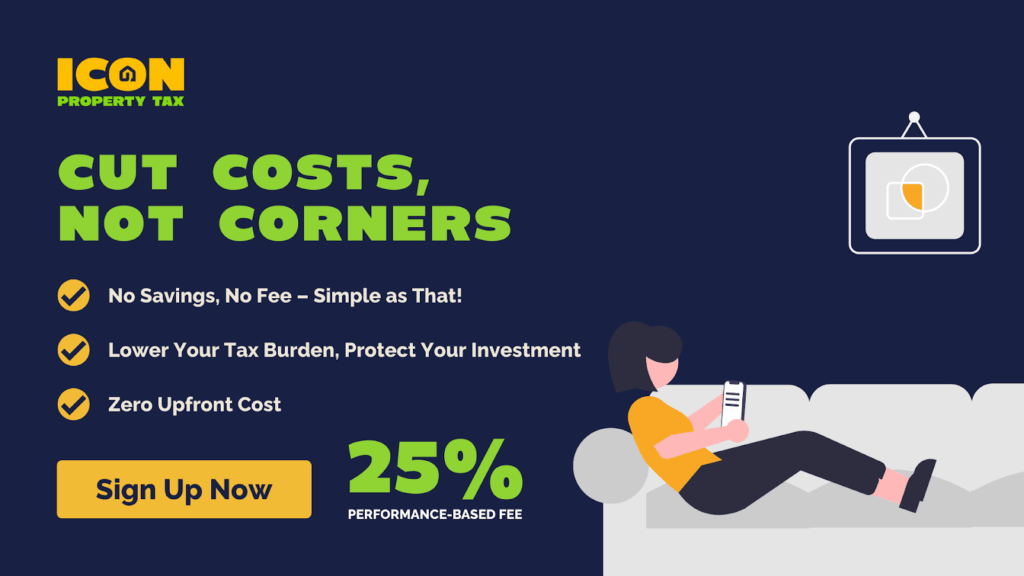Will Installing A Fence Affect Your Property Taxes?
November 10, 2025
Key Takeaways:
- Tax Impact: Not every fence installation leads to higher property taxes; the outcome depends on materials, visibility, and neighborhood standards.
- Appraisal Process: Fences are evaluated as part of the property’s overall value rather than as individual features, using comparable sales and market data.
- Appeal Opportunity: Homeowners can review their valuations and appeal if fencing improvements appear to raise taxable value unfairly.
Adding a fence to your home can do more than enhance your property’s privacy or curb appeal. It might also influence how your home is valued by your local appraisal district. Many homeowners ask, “does a fence increase property taxes,” but the answer isn’t always simple. It depends on factors such as materials, neighborhood standards, and how appraisers interpret improvements. Understanding these elements can help you make informed decisions before starting your next fencing project.
At Icon Property Tax, we have over 30 years of combined experience helping Texas homeowners fight for fair property valuations. Our local experts have saved clients over $100 million through performance-based appeals, ensuring no one pays more than they should. We advocate for homeowners by analyzing market data, reviewing appraisals, and providing clear insights into what affects property value.
Why Property Improvements Like Fences Matter To Tax Appraisers
Adding improvements to a property, such as a new deck, patio, or fence, can influence how an appraisal district evaluates your home’s value. Even though a fence might appear to be a simple upgrade, appraisers often see it as part of the property’s overall structure and appeal. In general, any feature that is permanent, functional, or enhances a property’s utility may be factored into its assessed value.
A fence can improve privacy, define property boundaries, and add curb appeal. These qualities can make a home more desirable in the market, which is what ultimately impacts how an appraiser views it. The key point is not just the presence of the fence but whether it adds measurable market value compared to other homes in your neighborhood.
Property owners sometimes find these evaluations confusing, especially when small improvements appear to increase their taxable value. This is where Icon Property Tax steps in to advocate for fair and accurate assessments. With trusted local tax agents and over 30 years of combined experience, Icon works on your behalf to make sure you’re paying only what’s necessary, not more.

How A Fence Might Affect Your Property Valuation
Installing a fence can influence how your property is perceived by appraisers and potential buyers. Some fences are treated as valuable additions that enhance the overall property, while others are considered standard features that have little or no effect. The material, placement, and distinctiveness of the fence all determine how much it may shift your appraisal:
Material And Design Influence Value
High-quality materials such as vinyl, stone, or decorative metal often have a stronger impact on appraised value. These materials tend to improve durability and curb appeal, giving the property a more refined appearance. On the other hand, simple wooden or chain-link fences are typically viewed as basic improvements that rarely lead to notable valuation changes.
Neighborhood Standards Matter
Appraisers compare your home to others in the same area to maintain consistency in assessments. If fences are already a common feature in your neighborhood, installing one might not add significant value. However, if yours stands out for quality or uniqueness in a neighborhood where fencing is less typical, it may contribute to a modest increase in valuation.
Visibility And Curb Appeal
Fences that are visible from the street can play a larger role in your home’s presentation. A front-facing or decorative fence may make a stronger impression on appraisers, as it contributes to overall aesthetic and marketability. Rear or side fences, however, are less likely to influence assessed value since they are less noticeable.
Do All Fences Increase Property Taxes? It Depends
Many homeowners wonder, does a fence increase property taxes, or is it simply a neutral addition to their property? The truth is that the outcome depends on several factors, including how the fence compares to other homes in the area and whether it’s viewed as an upgrade or simply a common feature. To understand how a fence might affect your tax assessment, it helps to look at a few key considerations:
Property Context Matters
Appraisal districts evaluate properties relative to others nearby. If fences are a common sight in your neighborhood, your addition might not stand out enough to influence value. However, if your property is one of the few with a high-end or visually distinct fence, appraisers may view it as an improvement that slightly increases your valuation.
Fence Quality And Purpose
Not all fences are created equal. A basic wooden privacy fence may have little to no effect on appraised value, while a custom-built or decorative fence can signal a more valuable property. Features like material strength, design, and craftsmanship can subtly shape how appraisers interpret your home’s overall quality.
Routine Replacement Vs. Upgrade
Replacing an old fence with a similar one is generally considered maintenance, not an improvement. Since it doesn’t alter your property’s condition or appeal, it typically won’t trigger a valuation change. However, upgrading to a more durable or high-end material could be treated as an enhancement, leading to a minor adjustment in your property record.
Market Influence
The ultimate question for appraisers is whether your fence impacts the market value of your property. If buyers in your area are willing to pay more for homes with secure or visually appealing fencing, that trend can influence local appraisal models. In contrast, if fences are viewed as standard or purely functional, they may carry little weight in valuation adjustments.
What Appraisers Actually Consider When Valuing A Fence
Appraisers do not assign a fixed dollar value to a fence by itself. Instead, they look at how the feature contributes to the property’s overall appeal and how it compares to similar homes that have recently sold. Their evaluation focuses on how much the fence enhances desirability, functionality, and perceived quality in the local market:
Material And Construction Quality
The material and workmanship of a fence are key factors in how it’s perceived. Vinyl, wrought iron, or stone fences often signal higher quality and long-term durability, which may slightly increase value. By contrast, basic chain-link or wood fences are typically categorized as standard features that add little beyond utility.
Visibility And Placement
A fence’s visibility can also influence how much weight it carries in an appraisal. A prominent front or corner fence that adds curb appeal may stand out more than one tucked away in the backyard. Fences that enhance the property’s presentation from the street often contribute more to perceived value.

Neighborhood Norms
Appraisers always assess a property within the context of its neighborhood. If nearly every home nearby has a similar fence, installing one on your property is unlikely to change its relative standing. On the other hand, a unique or premium fence in an area where such features are rare could affect the property’s market comparison.
Data Sources Used By Appraisers
Many appraisal districts rely on aerial imagery, permit data, or visual drive-by assessments to document property changes. These tools help determine whether a fence exists and how it may alter the property’s characteristics. However, because inspections are rarely detailed, the impact of a fence is still judged as part of the overall property package, not as a standalone upgrade.
Understanding How Comparable Sales Influence Your Taxable Value
Your property’s value is largely determined by how it compares to similar homes that have sold nearby. These “comparable sales,” or comps, guide appraisal districts in setting fair and consistent valuations. When a fence is part of your property, its impact is often measured against how similar features affect the sale prices of nearby properties:
How Comparable Sales Work
Appraisers use recent sales data from homes with similar characteristics to estimate your property’s market value. They then adjust for differences, such as the presence or absence of a fence. If fences in your area have been shown to slightly increase selling prices, your home’s assessed value might reflect that pattern.
Adjustments And Market Data
Adjustments made by appraisers are not random. They rely on standardized models and data that show how certain features influence resale values. If fences in your market have little effect on sale prices, the adjustment will likely be minimal or none at all.
Why Comparisons Are Important
Comparing your home to others helps maintain equity and accuracy in tax assessments. A neighbor’s home that sold for less may not be a true reflection of your property’s value if their fence, layout, or materials differ. That is why homeowners should look closely at the appraiser’s choice of comps before accepting a valuation.
Reviewing Your Appraisal
If you believe your property has been overvalued due to differences in comparable sales, it may be time to review your assessment. An informed approach to understanding comps can reveal whether your fence or other improvements have been weighed fairly.
What Texas Homeowners Should Know About Fence Additions And Protests
In Texas, property owners have the right to appeal their appraised value if they believe it does not accurately represent their home’s market worth. This includes situations where improvements such as fences may have been given too much weight during valuation. However, not every new fence justifies filing an appeal, so understanding how appraisal districts interpret these additions is essential:
When A Fence May Warrant An Appeal
If your property value increased noticeably after a fence installation, it’s worth reviewing the reason behind it. Compare your appraisal record with similar properties in your area. If other homes with similar fencing are valued lower, that could be a sign that your fence was overvalued or misclassified.
Using Market Data To Support Your Case
An effective appeal relies on comparing accurate and recent sales data. Homeowners should look for patterns that show how similar properties were valued after improvements. If the appraiser’s adjustments seem inconsistent with neighborhood trends, that evidence can strengthen your case for a lower valuation.
Understanding What Is And Isn’t Protestable
Not all property improvements result in valid grounds for an appeal. Replacing an old fence with a new one of the same type, for example, is generally treated as maintenance and not as an improvement that adds taxable value. However, if your valuation increased significantly without clear market justification, you may have a reason to challenge it.
How Icon Can Help
This is where Icon Property Tax steps in to stand up for your right to fair property taxes. With a performance-based model and trusted local agents, Icon helps homeowners navigate the property tax appeal process with transparency and data-driven accuracy. You only pay when you save, making it easier to protect your property value without upfront costs. Visit Icon Property Tax to begin reviewing your property insights and take the first step toward fairer taxes.

Final Thoughts
Installing a fence can certainly enhance your property’s privacy, security, and visual appeal, but its effect on your property taxes depends on how local appraisers interpret the change. Most fences, especially those that are common in a neighborhood, have minimal influence on property value. However, distinctive or high-quality fences that improve curb appeal may lead to a slight increase in appraisal. The important thing to remember is that appraisal districts consider your home in relation to comparable properties, not in isolation.
For Texas homeowners, understanding how improvements are evaluated helps set clear expectations when property values change. Reviewing your assessment and the comparable sales used by appraisers can reveal whether your valuation accurately reflects your property’s true market position. If a fence or any other improvement seems to have caused an unfair increase, it may be time to consider filing an appeal with the guidance of trusted professionals like Icon Property Tax.
Read Also:
- What Evidence Do You Need To Successfully Appeal Property Taxes In Texas?
- How To Appeal Your Property Taxes In Texas And Actually Win
- The Most Effective Ways To Lower Your Property Taxes In Texas
Frequently Asked Questions About Fences And Property Taxes
Can installing a fence increase both land and improvement value?
No, fences typically affect only the improvement value of your property, not the land value. The land value is based on location and size, while the improvement value includes structural and aesthetic upgrades.
Do different fence heights affect property taxes differently?
In some areas, yes. Taller or more elaborate fences can be viewed as upgrades that add value, while standard-height fences are often considered typical and have little impact.
Will my property taxes go down if I remove my fence?
Removing a fence rarely causes a noticeable tax decrease unless it significantly alters your property’s market appeal. The change must be large enough to affect overall property value.
Do appraisers use fence permits to reassess properties?
Many appraisal districts rely on building permits to track new improvements. If your city requires a permit for fences and you file one, it can signal to appraisers that a new structure has been added.
Can a poorly maintained fence lower my property value?
Yes, visible deterioration can affect curb appeal and perceived condition. However, it usually doesn’t result in a lower appraised value unless it severely impacts the property’s overall marketability.
If I install a fence around a commercial property, does it affect taxes the same way?
Commercial fences can influence valuation differently. For businesses, fencing might add functional value related to security or zoning requirements, which can factor into commercial assessments.
Does a corner lot fence have a higher chance of raising taxes?
Potentially. Fences on corner lots are more visible and may enhance the property’s aesthetic appeal, which can slightly raise its appraised value compared to interior lots.
How often do appraisers update property data related to fences?
Most appraisal districts review property data annually, but fence updates may only appear when new imagery or permit records become available.
Can I challenge a property value change caused by a fence without filing a full appeal?
Yes, you can request an informal review before filing an appeal. This allows you to present photos or data showing that your fence does not justify a higher value.
Are there situations where fences decrease property appeal or value?
Yes, fences that block views, clash with neighborhood aesthetics, or create maintenance issues can make a property less attractive to buyers, potentially lowering perceived value.

